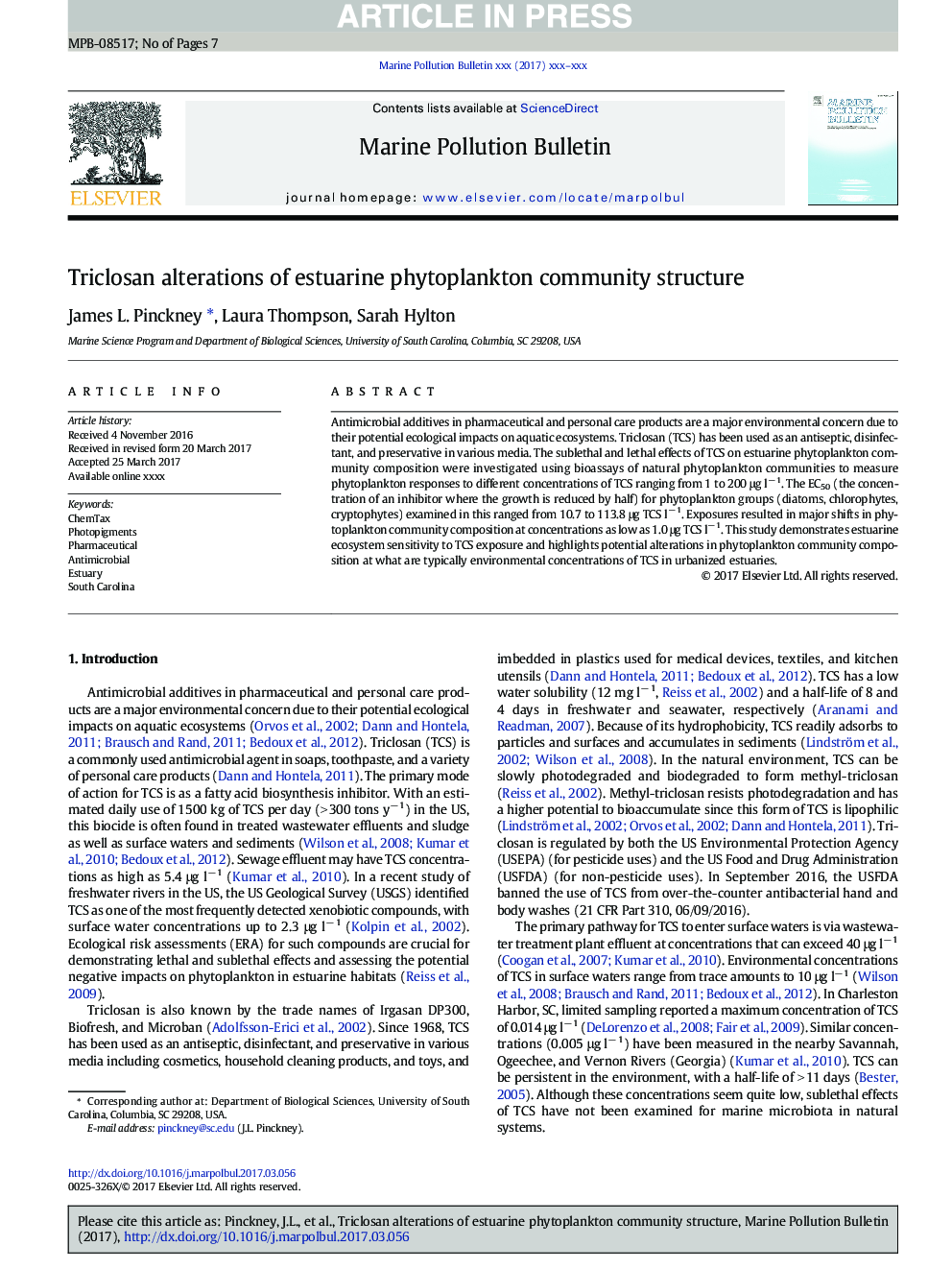| Article ID | Journal | Published Year | Pages | File Type |
|---|---|---|---|---|
| 5757939 | Marine Pollution Bulletin | 2017 | 7 Pages |
Abstract
Antimicrobial additives in pharmaceutical and personal care products are a major environmental concern due to their potential ecological impacts on aquatic ecosystems. Triclosan (TCS) has been used as an antiseptic, disinfectant, and preservative in various media. The sublethal and lethal effects of TCS on estuarine phytoplankton community composition were investigated using bioassays of natural phytoplankton communities to measure phytoplankton responses to different concentrations of TCS ranging from 1 to 200 μg lâ 1. The EC50 (the concentration of an inhibitor where the growth is reduced by half) for phytoplankton groups (diatoms, chlorophytes, cryptophytes) examined in this ranged from 10.7 to 113.8 μg TCS lâ 1. Exposures resulted in major shifts in phytoplankton community composition at concentrations as low as 1.0 μg TCS lâ 1. This study demonstrates estuarine ecosystem sensitivity to TCS exposure and highlights potential alterations in phytoplankton community composition at what are typically environmental concentrations of TCS in urbanized estuaries.
Related Topics
Physical Sciences and Engineering
Earth and Planetary Sciences
Oceanography
Authors
James L. Pinckney, Laura Thompson, Sarah Hylton,
